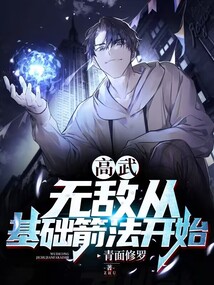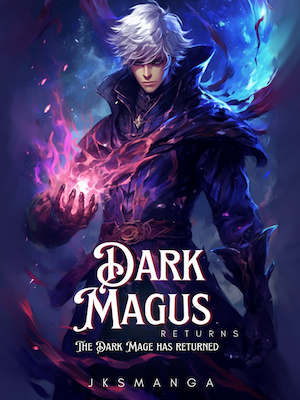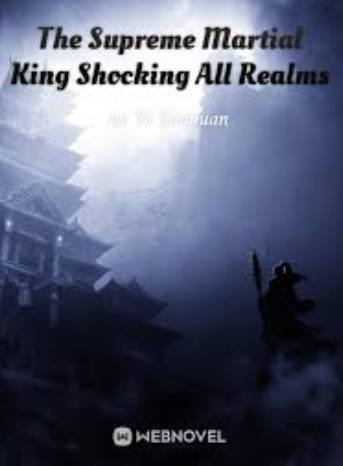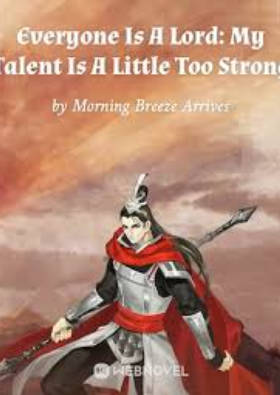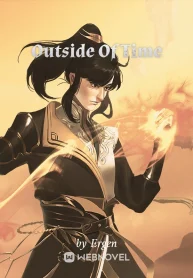Chapter 819: personal style
Roger Ebert’s admiration of "Pulp Fiction" was actually unexpected by many people. He attended the premiere of the film, but he waited until four days before writing a film review. People thought it was him. There are no signs of interest in movies, but the facts are surprising.
It turns out that in the past four days, Roger has gathered nearly 40 filmmakers’ friends, more than 30 reporters, and more than 200 ordinary viewers. They have been watching "Pulp Fiction" repeatedly. After an in-depth analysis, this profession and this investment are absolutely unimaginable.
After repeated scrutiny, Roger gave crazy praise for "Pulp Fiction" and gave the movie a high score of 3.7, directly labelling the film as "classic".
But unfortunately, Roger’s comment was not published in the official journal of the Cannes Film Festival because of “too much spoilers”. After coordination, Roger finally published the last paragraph of the film review, and the full version Critics waited until "Pulp Fiction" was released on the North American market before it reappeared in the "Chicago Sun".
Even so, Roger's precise comments and super high scores undoubtedly clearly understood his attitude towards "Pulp Fiction". Not only that, after the "Movie Manual", "Empire" and other professional magazines, there are also a large number of professional film ratings "Pulp Fiction" that has been praised.
The "Film Critic" who came to Cannes on behalf of the United States also expressed its views immediately. Although the score of 3.1 does not seem high, it is also the highest score of "Film Critics" at this year's Cannes Film Festival so far. "Movie Review" is more focused on Quentin Tarantino.
"Quentin is known as a movie naughty boy. Before becoming a film director, he used to run a video rental business and was a die-hard movie fan. However, he did not watch some films in the cinema, but through video tapes, which is exactly what An important reason for the rapid emergence of post-modern movies. Ordinary movie audiences have seen more movies from different countries and regions through video tapes and movie channels. Their stunning movies are far from the old-fashioned theater audiences before cheap video tape rentals. Can be compared.
Quentin's films are developed on the basis of video tapes and American popular culture, and he is very interested in China. Guoxiang. Hong Kong’s movies have an inescapable feeling. Italian movies are also his favorite. Classic works such as'Exhausted (a...de.),'Taxi Driver', and'Heroic Characters' have all become Quentin’s favorites, so In Quentin's movies, you can see countless passages that pay tribute to or learn from the classics of the golden age. The emergence of ‘Pulp Fiction’ also formally announced that postmodern films finally formed a trend after entering the 1990s, and Quentin’s greatest contribution was to make ‘shallow’ postmodern films into ‘epics’.
"Pulp fiction is a work that is difficult to define, because it has too many connections with American culture, history, and world movies. There are also a lot of unofficial street slang and swear words in the dialogue of the characters, which also makes the audience understand the film. Increased a lot of difficulty.
Pulp fiction refers to the kind of novel with crude content and simple binding. This kind of novel is often made of recycled paper. It is produced by mixing discarded newspapers and books into pulp. The reason why Quentin named the movie this name is to imply that his movie is made up of fragments of many other films and literary works. He changed all the tough content-violence, sex, politics, and national wars. It's as easy to swallow as pulp or even tomato sauce.
There are many filmmakers who spend a lot of time interpreting the true meaning of postmodernism, but Quentin only relied on a ‘pulp fiction’ to make himself a postmodern movie hero.
"Pulp fiction, the four stories are all around the underworld gangs, but these stories are not related or directly related, but the characters appearing in the story will appear in other stories, Vincent He has become the core figure in the series of stories, although he may not have the most weight in some stories.
If only a few stories are told in sections, then there is nothing new. But Quentin split the opening of the restaurant robbery into two parts, placed at the beginning and the end; not only that, Quentin also split and told several other stories, so that the characters who died in the front appeared at the end of the movie. Still the absurd scenes that continue to appear. This makes the audience clearly aware that this is a fake movie, a vulgar novel with the beginning, the end and even some parts in the middle accidentally torn off.
"Pulp fiction, which beautifies or stylizes violence, continues Quentin’s attempts in the "falling water dog", but it is more entertaining. Quentin jokes about violence and sex. Just kidding, making political jokes, making fun of history, With Hugo Lancaster and Uma Thurman dancing in a twist, Quentin easily reviewed American film history, music history, and dance history, plus the treatment in film noir and tough guy novels. The indifferent attitude of violence and evil, the character design and layout of the bandit movie, Hong Kong. The fierce action of the Hong Kong movie, the miracle of magic realism and the confusion of reality, make this movie's postmodernism reach the level of carnival.
Vincent rescued sucked. When Mia was overdose, the plot of marking the injection on her chest came from the great'One Hundred Years of Solitude (...de.). Before Colonel Rio Relliano committed suicide, he ordered the doctor to find one on his chest and let him die. Happy and accurate marking.
Quentin himself said in an interview, ‘my works are copied from the east and the west, quarreling and mixing them up. I just plagiarize everywhere, and great artists always plagiarize. ,
"Pulp fiction, the treatment of violence is one of the important reasons why the film can shine. Before Jules killed someone, he argued with each other about which burger is the best, and he also read a Bible; Vincent and Jules rubbed it together. The car was arguing about who should wash the brains in the back seat of the car; the female taxi driver asked Butch to tell how it felt when killing someone...
To beautify or stylize violence, this is not Quentin's original sword. In 1960, Alfred-Hitchcock made the most ritual killing method in movie history in "The Cry (, the murderer gradually approached the heroine who was showering with the changes in the editing rhythm; 1967 , Arthur Penn (arthur. penn)'s "male and male thieves" handsome men and beauties affirm their love for each other in the bank robbery desperately; in 1976, Martin Scorsese's "taxi driver" 1990's "My Heart" Wild (.at.heart) "The End of the Wild Flower in 1999" "The Silent Lamb" in 1992, the protagonist's way of self-awakening and understanding the meaning of life is violence.
The difference between Quentin and the former is not his boldness and directness, but that he lived in the nineties: an era where style and fashion were more important than any period due to music videos and sneaker advertisements, and an era due to street violence and Bosnia and Herzegovina. The age when war cost human lives more cheaply than in any period. Quentin cleverly combined the social epidemic with the reality of crime, making his violence shine even more brilliantly than visual colors.
Quentin did not directly connect'Pulp Fiction' with postmodernism. He seemed to be telling everyone that after entering the 1990s, the development of society was rapid, changeable, and worthless, and no one was immune. Power, regardless of life and death, is unreasonable and fair. The film is nothing more than trivia and jokes. It is a vulgar novel. "
The review angle of "Film Critic" is very characteristic, mainly discussing Quentin’s personal style as a starting point, and gave the most direct affirmation of Quentin’s post-modern stylization, which also made their film critics comment. It is unique among them.
Although "Pulp Fiction" is only Quentin's second work, it has established him as a "master" in one fell swoop. This is a situation that many people did not expect, but the truth is also true. Almost all film critics Focusing on Quentin, he analyzes the strong style of "Pulp Fiction" from various angles.
If according to the previous prediction of the "New York Times", this situation is obviously expected: Quentin's personal style overwhelms the style of the entire movie, and the actors are completely submerged under the light of the director. But in fact, with the rave reviews of "Pulp Fiction", the performances of the three main actors, Samuel Jackson, Hugo Lancaster, and Uma Thurman have also received varying degrees of praise. Among them, Hugo is the most.
The "Los Angeles Times" traveled across the ocean to Cannes and commented on the film for the first time.
"From the perspective of actors,'Pulp Fiction' is a typical group image movie, but this work is different from the general group image movie. These group images never appear in a'time and space' at the same time, but they are closely connected at all times. Together, each story has its own protagonist, and the protagonist in this story will be a supporting actor in another story. While developing the plot for other stories, he will also leave the foreshadowing of his own story in advance.
Uma-Thurman’s performance is very impressive Natural and coquettish, lazy and casual, with red lips, bare feet, and black hair, it has become one of the numerous male characters in the movie. A highlight; Samuel-Jackson’s performance is not unbelievable. His control of the lines is very wonderful. Unfortunately, he lacks a bit of delicacy and explosiveness, whether it is compared with his own previous performances or with this work. Compared with the other actors in the movie, they are all slightly inferior, but he still accomplished his task brilliantly; relatively speaking, Bruce-Willis did not make any breakthroughs, and still looks like a lonely hero.
What is truly amazing is Hugo Lancaster, this time Hugo once again got rid of the shackles of self-image, presenting a completely different "Hugo"-Vincent, in the whole movie , Hugo’s kind of tepid, unhurried, confused and charming temperament, with a little unrestrainedness in the chaos, perfectly combined with the character of Vincent. When Vincent was arguing with someone, he slightly extended his index finger and placed it in front of his lips. The charming gesture with confused eyes became the most shining picture on the entire screen.
Hugo's eyes full of a thousand words, between the lightly raised eyebrows, fully interpret the complexity and delicacy of the role, which is amazing. Unfinished to be continued. If you like this work, you are welcome to read it and vote for a monthly pass for the work. Your support is the biggest motivation for me to continue to create!)
.
It turns out that in the past four days, Roger has gathered nearly 40 filmmakers’ friends, more than 30 reporters, and more than 200 ordinary viewers. They have been watching "Pulp Fiction" repeatedly. After an in-depth analysis, this profession and this investment are absolutely unimaginable.
After repeated scrutiny, Roger gave crazy praise for "Pulp Fiction" and gave the movie a high score of 3.7, directly labelling the film as "classic".
But unfortunately, Roger’s comment was not published in the official journal of the Cannes Film Festival because of “too much spoilers”. After coordination, Roger finally published the last paragraph of the film review, and the full version Critics waited until "Pulp Fiction" was released on the North American market before it reappeared in the "Chicago Sun".
Even so, Roger's precise comments and super high scores undoubtedly clearly understood his attitude towards "Pulp Fiction". Not only that, after the "Movie Manual", "Empire" and other professional magazines, there are also a large number of professional film ratings "Pulp Fiction" that has been praised.
The "Film Critic" who came to Cannes on behalf of the United States also expressed its views immediately. Although the score of 3.1 does not seem high, it is also the highest score of "Film Critics" at this year's Cannes Film Festival so far. "Movie Review" is more focused on Quentin Tarantino.
"Quentin is known as a movie naughty boy. Before becoming a film director, he used to run a video rental business and was a die-hard movie fan. However, he did not watch some films in the cinema, but through video tapes, which is exactly what An important reason for the rapid emergence of post-modern movies. Ordinary movie audiences have seen more movies from different countries and regions through video tapes and movie channels. Their stunning movies are far from the old-fashioned theater audiences before cheap video tape rentals. Can be compared.
Quentin's films are developed on the basis of video tapes and American popular culture, and he is very interested in China. Guoxiang. Hong Kong’s movies have an inescapable feeling. Italian movies are also his favorite. Classic works such as'Exhausted (a...de.),'Taxi Driver', and'Heroic Characters' have all become Quentin’s favorites, so In Quentin's movies, you can see countless passages that pay tribute to or learn from the classics of the golden age. The emergence of ‘Pulp Fiction’ also formally announced that postmodern films finally formed a trend after entering the 1990s, and Quentin’s greatest contribution was to make ‘shallow’ postmodern films into ‘epics’.
"Pulp fiction is a work that is difficult to define, because it has too many connections with American culture, history, and world movies. There are also a lot of unofficial street slang and swear words in the dialogue of the characters, which also makes the audience understand the film. Increased a lot of difficulty.
Pulp fiction refers to the kind of novel with crude content and simple binding. This kind of novel is often made of recycled paper. It is produced by mixing discarded newspapers and books into pulp. The reason why Quentin named the movie this name is to imply that his movie is made up of fragments of many other films and literary works. He changed all the tough content-violence, sex, politics, and national wars. It's as easy to swallow as pulp or even tomato sauce.
There are many filmmakers who spend a lot of time interpreting the true meaning of postmodernism, but Quentin only relied on a ‘pulp fiction’ to make himself a postmodern movie hero.
"Pulp fiction, the four stories are all around the underworld gangs, but these stories are not related or directly related, but the characters appearing in the story will appear in other stories, Vincent He has become the core figure in the series of stories, although he may not have the most weight in some stories.
If only a few stories are told in sections, then there is nothing new. But Quentin split the opening of the restaurant robbery into two parts, placed at the beginning and the end; not only that, Quentin also split and told several other stories, so that the characters who died in the front appeared at the end of the movie. Still the absurd scenes that continue to appear. This makes the audience clearly aware that this is a fake movie, a vulgar novel with the beginning, the end and even some parts in the middle accidentally torn off.
"Pulp fiction, which beautifies or stylizes violence, continues Quentin’s attempts in the "falling water dog", but it is more entertaining. Quentin jokes about violence and sex. Just kidding, making political jokes, making fun of history, With Hugo Lancaster and Uma Thurman dancing in a twist, Quentin easily reviewed American film history, music history, and dance history, plus the treatment in film noir and tough guy novels. The indifferent attitude of violence and evil, the character design and layout of the bandit movie, Hong Kong. The fierce action of the Hong Kong movie, the miracle of magic realism and the confusion of reality, make this movie's postmodernism reach the level of carnival.
Vincent rescued sucked. When Mia was overdose, the plot of marking the injection on her chest came from the great'One Hundred Years of Solitude (...de.). Before Colonel Rio Relliano committed suicide, he ordered the doctor to find one on his chest and let him die. Happy and accurate marking.
Quentin himself said in an interview, ‘my works are copied from the east and the west, quarreling and mixing them up. I just plagiarize everywhere, and great artists always plagiarize. ,
"Pulp fiction, the treatment of violence is one of the important reasons why the film can shine. Before Jules killed someone, he argued with each other about which burger is the best, and he also read a Bible; Vincent and Jules rubbed it together. The car was arguing about who should wash the brains in the back seat of the car; the female taxi driver asked Butch to tell how it felt when killing someone...
To beautify or stylize violence, this is not Quentin's original sword. In 1960, Alfred-Hitchcock made the most ritual killing method in movie history in "The Cry (, the murderer gradually approached the heroine who was showering with the changes in the editing rhythm; 1967 , Arthur Penn (arthur. penn)'s "male and male thieves" handsome men and beauties affirm their love for each other in the bank robbery desperately; in 1976, Martin Scorsese's "taxi driver" 1990's "My Heart" Wild (.at.heart) "The End of the Wild Flower in 1999" "The Silent Lamb" in 1992, the protagonist's way of self-awakening and understanding the meaning of life is violence.
The difference between Quentin and the former is not his boldness and directness, but that he lived in the nineties: an era where style and fashion were more important than any period due to music videos and sneaker advertisements, and an era due to street violence and Bosnia and Herzegovina. The age when war cost human lives more cheaply than in any period. Quentin cleverly combined the social epidemic with the reality of crime, making his violence shine even more brilliantly than visual colors.
Quentin did not directly connect'Pulp Fiction' with postmodernism. He seemed to be telling everyone that after entering the 1990s, the development of society was rapid, changeable, and worthless, and no one was immune. Power, regardless of life and death, is unreasonable and fair. The film is nothing more than trivia and jokes. It is a vulgar novel. "
The review angle of "Film Critic" is very characteristic, mainly discussing Quentin’s personal style as a starting point, and gave the most direct affirmation of Quentin’s post-modern stylization, which also made their film critics comment. It is unique among them.
Although "Pulp Fiction" is only Quentin's second work, it has established him as a "master" in one fell swoop. This is a situation that many people did not expect, but the truth is also true. Almost all film critics Focusing on Quentin, he analyzes the strong style of "Pulp Fiction" from various angles.
If according to the previous prediction of the "New York Times", this situation is obviously expected: Quentin's personal style overwhelms the style of the entire movie, and the actors are completely submerged under the light of the director. But in fact, with the rave reviews of "Pulp Fiction", the performances of the three main actors, Samuel Jackson, Hugo Lancaster, and Uma Thurman have also received varying degrees of praise. Among them, Hugo is the most.
The "Los Angeles Times" traveled across the ocean to Cannes and commented on the film for the first time.
"From the perspective of actors,'Pulp Fiction' is a typical group image movie, but this work is different from the general group image movie. These group images never appear in a'time and space' at the same time, but they are closely connected at all times. Together, each story has its own protagonist, and the protagonist in this story will be a supporting actor in another story. While developing the plot for other stories, he will also leave the foreshadowing of his own story in advance.
Uma-Thurman’s performance is very impressive Natural and coquettish, lazy and casual, with red lips, bare feet, and black hair, it has become one of the numerous male characters in the movie. A highlight; Samuel-Jackson’s performance is not unbelievable. His control of the lines is very wonderful. Unfortunately, he lacks a bit of delicacy and explosiveness, whether it is compared with his own previous performances or with this work. Compared with the other actors in the movie, they are all slightly inferior, but he still accomplished his task brilliantly; relatively speaking, Bruce-Willis did not make any breakthroughs, and still looks like a lonely hero.
What is truly amazing is Hugo Lancaster, this time Hugo once again got rid of the shackles of self-image, presenting a completely different "Hugo"-Vincent, in the whole movie , Hugo’s kind of tepid, unhurried, confused and charming temperament, with a little unrestrainedness in the chaos, perfectly combined with the character of Vincent. When Vincent was arguing with someone, he slightly extended his index finger and placed it in front of his lips. The charming gesture with confused eyes became the most shining picture on the entire screen.
Hugo's eyes full of a thousand words, between the lightly raised eyebrows, fully interpret the complexity and delicacy of the role, which is amazing. Unfinished to be continued. If you like this work, you are welcome to read it and vote for a monthly pass for the work. Your support is the biggest motivation for me to continue to create!)
.
